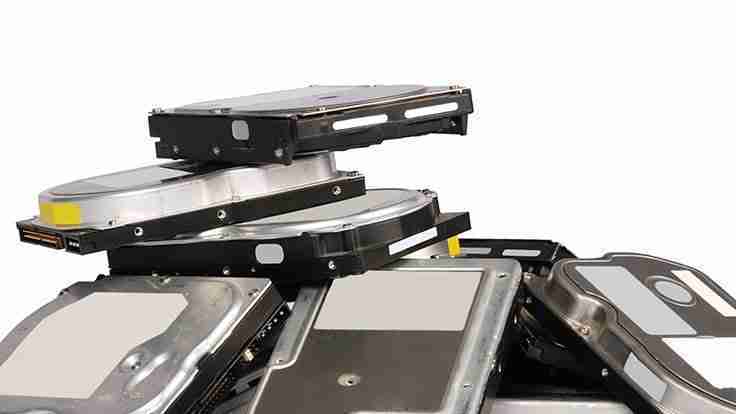
Businesses and the public sector are seen as data controllers and have a duty to ensure that data is protected. This is especially important when disposing of computer equipment and doing hard disk recycling.
Data security, data breaches and data protection is now becoming part of everyday life. From a personal perspective we want our data looked after, we don’t want it to fall into the wrong hands and we expect the people who hold our data to be equally responsible.
The majority of businesses don’t use a professional service to physically destroy old hard drives, USBs or other hardware that contain confidential information. Only physical destruction ensures the data on an old hard drive is 100% destroyed.
Also read: How to Dispose your Computer and Portable Storage Media Securely
If your hard drive recycling process includes erasing, reformatting, wiping or degaussing old hard drives, you and your customers are still vulnerable. In fact, as long as the drives are physically intact, private information can still be retrieved.
Hard drive recycling can be viewed in several ways, overwriting the drives by completely erasing the data so the drives can be reused or physically destruction, which means the drives would go for further recycling to take the drives to its base materials as recyclables.
Erasing the drives allows reuse but you should make sure that the drives are completely wiped. Using an CESG approved software will ensure this and will allow a certificate of media erasure to be printed off on successful wipes.
However, you still need a procedure for drives that fail the wiping process. Only physical destruction then will ensure complete data removal.
Physical destruction takes two forms: shredding or crushing, but this is not the end of the process. Once the drives are destroyed they undergo further recycling.
Once they have been shredded or crushed the drives are then shredded further and chopped into tiny particle sizes. There are then various ways of separating the materials out, including electromagnets, floating off materials in different density liquids, eddy current separators and centrifuges. This allows light metals to be separated from aluminium, the magnets are separated and the circuit boards.
These are returned as recyclables and would be base materials ready for a brand new production process and product.
Hard disk destruction machines (hydraulic crusher or shredder) are specifically designed to destroy your hard drives so that data can never be retrieved or reconstructed. Only complete, physical destruction will ensure that your digital data is permanently destroyed. It offers two options for permanent hard drive destruction:
Shreds your entire hard drive into small pieces using industrial grade destruction equipment. The hard drive shredding process completely destroys the drive platters, mechanisms, and the electronic components rendering the data unrecoverable.
Punching an irreparable hole through each hard drive with 3,400 kilos of force pressure. Completely destroying the drive platters, rippling and fracturing the magnetic surfaces and rendering the drive data unrecoverable.
Our better-than-industry standards start with our secure chain of custody protocols. We invest in the latest technologies to ensure end-to-end tracking of your hard drives:
Following every paper shredding service, you will receive a Certificate of Destruction confirming that your material has been securely destroyed. More than peace of mind, your Certificate of Destruction is your audit trail to help demonstrate that your information is no longer at risk and your business is compliant with relevant data protection laws.
It’s worth making the point again – failure to arrange the destruction of your old hard drives at the time of recycling your computer or phone could result in the inappropriate sharing of sensitive information.
Also read: The Singtel x SingPost E-waste Recycling Programme
Importance of Efficient Access Controls that every Organisation in Singapore should take note of. Enhancing…
Prioritizing Security Measures When Launching a Webpage That Every Organisation in Singapore should take note…
Importance of Regularly Changing Passwords for Enhance Online Security that every Organisation in Singapore should…
Comprehensive Approach to Data Protection and Operational Integrity that every Organsiation in Singapore should know…
Here's the importance of Pre-Launch Testing in IT Systems Implementation for Organisations in Singapore. The…
Understanding Liability in IT Vendor Relationships that every Organisation in Singapore should look at. Understanding…
This website uses cookies.